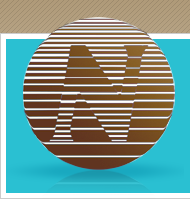Call for Papers:
“ACLA 2017: July 6-9, 2017, Utrecht, Netherlands
Proposed Seminar: History, Fiction, and Historical Fiction
Organizers: Chris Chiasson, Indiana University Bloomington
Charles Chiasson, University of Texas at Arlington
Georg Lukács initiated a fruitful line of inquiry into the conditions of nineteenth-century realism with his pioneering study The Historical Novel (1937) and Hayden White has spawned an even more capacious literature about the narratological strategies of historical writing with his Metahistory: The Historical Imagination in Nineteenth-Century Europe (1973). Strangely, though, the connections suggested by these two seminal works between nineteenth-century historiography and literature have yet to be fully explored, and the general questions they raise about the relations between history and literature have been addressed in broad theoretical terms more often than in discussions of concrete examples. This seminar proposes to examine the generic and narratological interplay between literary and historical writing through close readings of particular works.
Beginning with Herodotus and Thucydides in the Western tradition, historians have borrowed large-scale narrative architecture, small episodes, and particular verbal formulations from literary genres high – ode, tragedy, and epic, among others – and low – folk tale, comedy, and novel, among many others. At the same time, literary writers have not only mined historians’ accounts for source material but re-plotted them, lifted anecdotes and exempla, and used them to adjust their notions of literary form in a general evolution towards more complex chronotopes and the more open-ended structures of the novel, if Bakhtin is to be believed. Each paper should address how a particular historical text adapts a generic or narrative strategy from a literary text or corpus, or vice versa.
Topics could include but are not limited to:
– the Greek and Roman historians’ use of epic, lyric, and tragedy, and the use made of them in turn by later literary writers
– the relationship of the Medieval chronicle to the Arthurian romance
– how 16th century writers used the Greek and Roman historians for micro-genres like the anecdote and the exemplum
– questions of verisimilitude relating to history and literature in the Italian Renaissance
– historical drama from Shakespeare to German Romanticism
– Hume, Gibbon, and the eighteenth-century British novel
– the relations between the 19th-century historical novel and the great 19th-century histories
– modernist and post-modernist historical novels, especially attempts to abandon traditional literary form and create radically open-ended structures in line with current theorizing about avoiding the imposition of narrative on history
– emplotment and endings in historical narratives according to White, Ricoeur, Kermode, D. A. Miller, and/or Peter Brooks
– micro-history’s relation to fiction
– thinking about literary form in terms of big history (e.g., Richard McGuire) and non-human agents in contemporary history and literature (e.g., Wendy Doniger)
Abstracts (~250 words) will be accepted through the ACLA website from September 1 to September 23, 2016. If you have any questions about the seminar, please contact Chris Chiasson (cchiasso@indiana.edu).”

